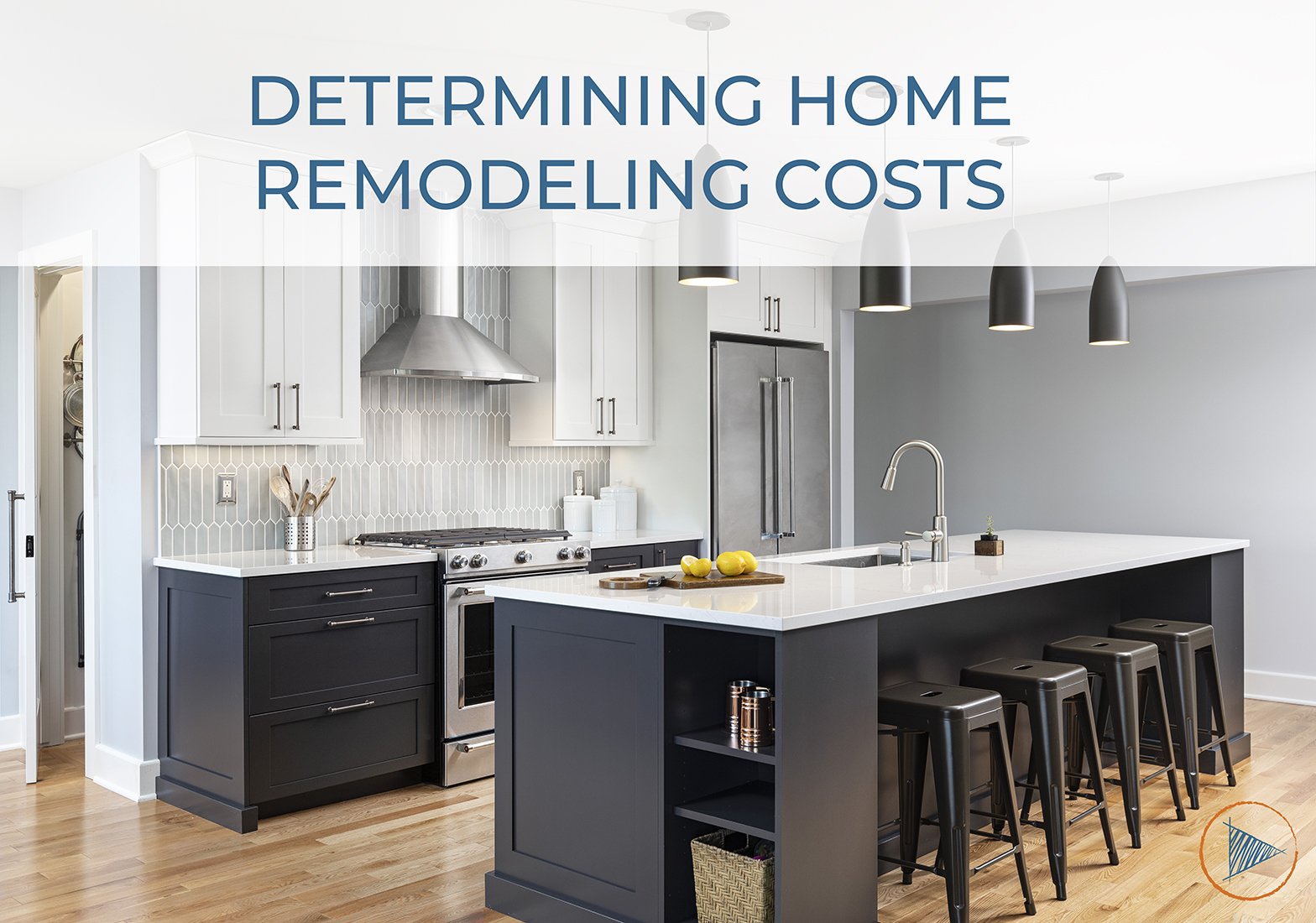5 Factors to Determining Home Remodeling Costs
You’re finally there. You’ve gotten to the place where your daydreams have culminated into home remodel reality. You’ve bookmarked projects on Houzz, talked to friends who’ve had similar remodels, set a realistic budget, and even are pre-approved for funding or have tucked away enough cash. Now it’s time to put the plan into action.
Embarking on a home remodeling project can be one of the most exciting parts of home ownership, but it can be one of the most stressful ones too, if all doesn’t go according to plan, or more importantly, according to budget.
Cost becomes a driving influence of how people feel about their remodel projects, and 70% of homeowners have a number in their heads when they plan a remodel. According to a study by Houzz, however, 31% of home remodel projects come in over those anticipated budgets.
In the early stages of planning your project, it’s important to understand the main factors that drive the cost of home remodels. Being aware of the factors below could help you be more conscious of where your final bill will end up when it’s all said and done.
1. Material Upgrades
A staggering 45% of the time, projects go over their original estimate because of material upgrades. There’s absolutely no shame in wanting the best for your home, and some upgrades will give you a greater ROI when re-selling or be enhancements worth the investment.
For instance, moving to concrete countertops from granite, trading in laminate flooring for ceramic, and venturing into the next level of premium appliances, windows, hardware and more can give your project a premium look — but at a premium price. Be aware of your upgrade tendencies when starting your project and be honest with your design/build remodeling firm about your tastes. A good firm will be able to add some cushion into your budget for must-have upgrades you discover along the way.
2. Scope Creep
“Sure, while you’re at it” can get out of control. There are always small value-added items that a contractor can work in for you, but be aware of how much this will can add to your bill.
A good contractor will be able to give you a ballpark number of how much additional tweaks could add to your bottom line and will also follow-up by providing you with a change order spelling out the upgrade costs. In Michigan, you’ll find your most reputable builders and remodelers have a strong change order policy which that documents changes and also protects all parties - the builder, subcontractors and the homeowner.
3. Code Compliance Improvements
Municipalities often require items in a home to be brought up to current codes when you start a new project. Simple modifications like adding ground fault switches in your kitchen renovation could pose minimal impact on your final number, but some codes may greatly impact your overall project cost.
A professional contractor will understand the codes for your municipality, explore beforehand what may need to be altered in your home to pass the final inspection and discuss this with you. Not doing so could cost you thousands of dollars for poor foresight.
4. Contractor Labor Pricing
Cheaper is not always better, nor is the highest price necessarily the best value. Renovation contractors will come in with numbers that can vary as much as 20-50% in cost. Many different factors drive labor rates, making detailed estimates essential for homeowners faced with choosing a contractor.
As a general rule, an extremely low price is reason for suspicion. A quality contractor who cuts corners, neglects to pay taxes and insurances and doesn’t have the appropriate licenses can afford to trim their prices to give you a lowball estimate. Sometimes contractors will lowball an estimate, only to “nickel and dime” the project during the renovation – meaning that you end up paying the same (or more) by the end of the project. Paying a little more for a quality contractor who communicates their process from start to finish could ensure you’re dealing with a pro that doesn’t cheat the rules or you — the customer.
5. Location
Unfortunately, in some regions of the country, the same project will cost you more. Many factors drive competitive pricing in different areas, so make sure to do your research before assuming how much you should be spending.
Understanding these factors can help you more effectively compare contractors and ask the right questions when it comes time for explanations. A worthy contractor will be able to confidently and honestly answer your questions, and work with you to plan a project that meets your expectations and your budget.
Ready to start a home remodel or addition project? Let’s Talk.

